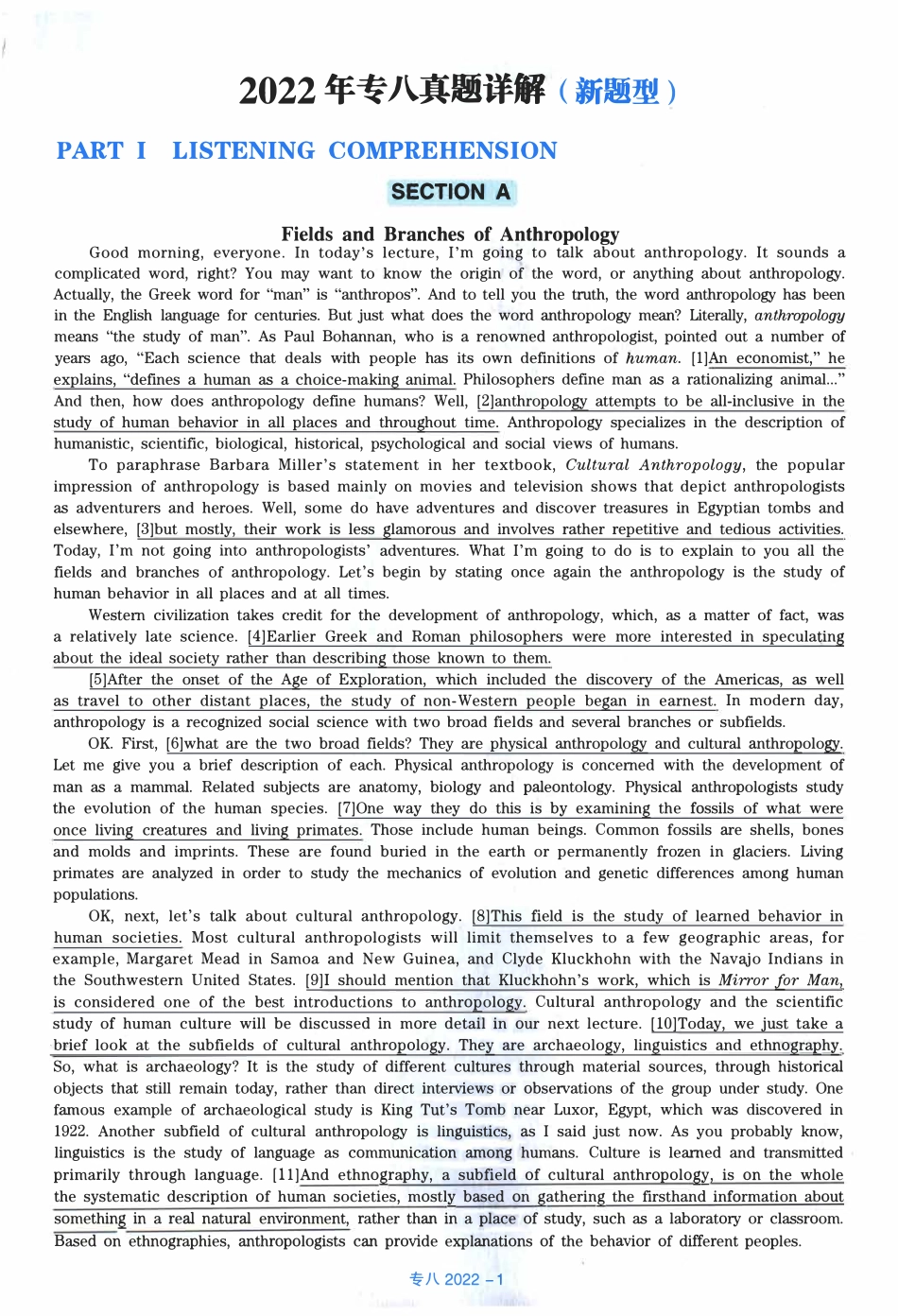2第二套2 � =!Ji J�1tlliilffl < fnRffl ) PART I LISTENING COMPREHENSION SECTION A Fields and Branches of Anthropology Good morning, everyone. In today&#第三套9;s lecture, I&#第三套9;m going to talk about anthropology. It sounds a complicated word, right? You may want to know the origin of the word, or anything about anthropology. Actually, the Greek word for "man" is "anthropos". And to tell you the truth, the word anthropology has been in the English language for centuries. But just what does the word anthropology mean? Literally, anthropology means "the study of man". As Paul Bohannan, who is a renowned anthropologist, pointed out a number of years ago, "Each science that deals with people has its own definitions of human. [l]An economist," he explains, "defines a human as a choice-making animal. Philosophers define man as a rationalizing animal ... " And then, how does anthropology define humans? Well, [2]anthropology attempts to be all-inclusive in the study of human behavior in all places and throughout time. Anthropology specializes in the description of humanistic, scientific, biological, historical, psychological and social views of humans. To paraphrase Barbara Miller&#第三套9;s statement in her textbook, Cultural Anthropology, the popular impression of anthropology is based mainly on movies and television shows that depict anthropologists as adventurers and heroes. Well, some do have adventures and discover treasures in Egyptian tombs and elsewhere, [3]but mostly, their work is less glamorous and involves rather repetitive and tedious activities. Today, I&#第三套9;m not going into anthropologists&#第三套9; adventures. What I&#第三套9;m going to do is to explain to you all the fields and branches of anthropology. Let&#第三套9;s begin by stating once again the anthropology is the study of human behavior in all places and at all times. Western civilization takes credit for the development of anthropology, which, as a matter of fact, was a relatively late science. [4]Earlier Greek and Roman philosophers were more interested in speculaµng about the ideal society rather than describing those known to them. [5]After the onset of the Age of Exploration, which included the discovery of the Americas, as well as travel to other distant places, the study of non-Western people began in earnest. In modern day, anthropology is a recognized social science with two broad fields and several branches or subfields. OK. First, [6]what are the two broad fields? They are physical anthropology and cultural anthropology. Let me give you a brief description of each. Physical anthropology is concerned with the development of man as a mammal. Related subjects are anatomy, biology and paleontology. Physical anthropologists study the evolution of the human species. [7]One way they do this is by examining the fossils of what were once living creatures and living primates. Those include human beings. Common fossils a...


